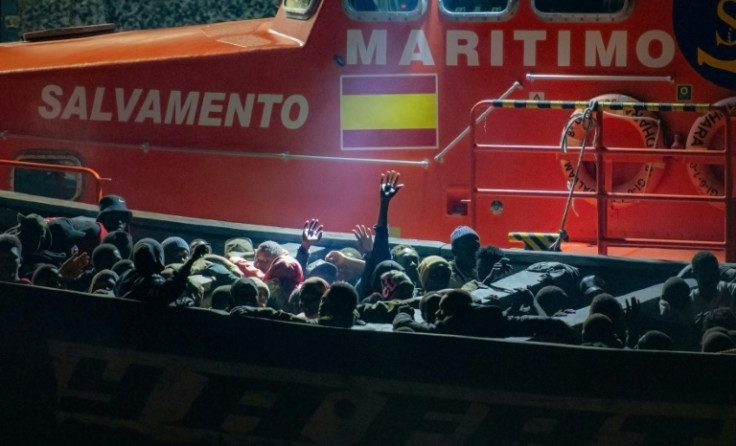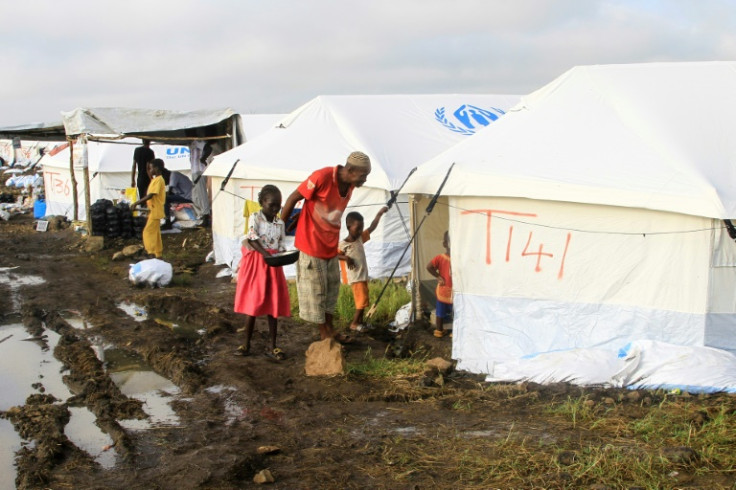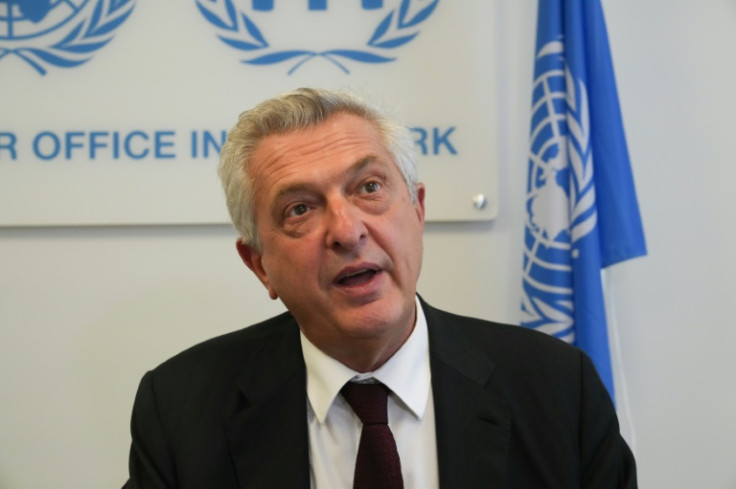'Atrocious' Sudan War Pushing Refugees Further Afield: UNHCR Chief

The UN's refugee chief questioned Sunday what future awaited the Sudanese people as the country's civil war rages, pushing its people ever further afield including to Uganda and Europe's maritime borders.
Since the start of the war in April 2023, "well over 10 million people have been chased away from their homes," two million of whom fled Sudan, Filippo Grandi told AFP in an interview, ahead of the annual UN General Assembly high-level week.
"What's the future for a country like Sudan, devastated by war?" Grandi asked.
Grandi's role leading the UNHCR and its 20,000 staff is one of the most important in the United Nations due to the ever-growing number of refugees in the world, and the agency has won the Nobel Peace Prize twice.
Grandi said it was "worrying" that "people are starting to move away from the immediate neighborhood," describing a sharp increase of Sudanese -- around 40,000 -- arriving in non-bordering Uganda.
"We have seen at least 100,000 Sudanese arrive in Libya," Grandi said.
"We know that, given the active presence of trafficking networks and also the proximity with Europe, many of them may now try, or are already trying, to take boats on to Italy and other European countries," Grandi said.
"We have been warning the Europeans," he added, insisting that humanitarian aid for Sudan was inadequate, and that Sudanese people would continue to leave and would reach more countries.
"This crisis is really beginning to impact the whole region in very, very risky ways."
Chad, South Sudan, Ethiopia and the Central African Republic are home to tens of thousands of refugees, while Egypt, where many Sudanese migrants were already living, is home to millions.
Sudan's civil war has pitted the army led by general Abdel Fattah al-Burhan against the paramilitary RSF forces of general Mohamed Hamdane Daglo, claiming tens of thousands of lives and plunging 26 million into severe food insecurity.
Famine has been declared in Zamzam camp in Darfur near to the city of El-Fasher, where the RSF this weekend launched a large-scale offensive after months of siege.
"We have very patchy information about the situation inside," Grandi said.
"(But) we know that there are certain patterns" -- namely that militias, sometimes linked with one of the warring parties or the RSF itself "targets or puts pressure on civilians."
The RSF, with the support of Arab militias, have killed between 10,000 and 15,000 people in the West-Darfur town of El-Geneina alone, UN experts said.
"This most grave crisis -- a crisis of human rights, a crisis of humanitarian needs -- passes largely unobserved in our international community," Grandi said.
"Every new crisis chases the other crisis away" -- from Ukraine to Gaza.
But even before the deadly war in Gaza, the war in Sudan had been "marginalized" despite its massive impact, he said, condemning the "deficit of interest for crises in Africa," like those in the Democratic Republic of Congo and the Sahel, as "frightening and shocking."
Grandi questioned the outlook for Sudan even if peace was achieved, warning that the Sudanese middle class which had "held the country together had been completely destroyed.
"They know that it's over. They've lost their jobs, their homes have been destroyed," he said.
"Many times relatives have been killed. It's atrocious."


© Copyright AFP 2024. All rights reserved.





















